| 1 x afterRenderComponent com_content (1.3MB) (29.57%) | 73.37ms |
| 1 x afterRenderRawModule mod_articles_category (READ MORE...) (87.33KB) (24.54%) | 60.90ms |
| 1 x afterRenderRawModule mod_tags_popular (Search) (48.62KB) (19.81%) | 49.15ms |
| 1 x afterInitialise (1.28MB) (9.04%) | 22.44ms |
| 1 x beforeRenderRawModule mod_articles_category (READ MORE...) (435.25KB) (2.69%) | 6.67ms |
| 1 x afterRender (345.02KB) (2.47%) | 6.13ms |
| 1 x afterRoute (826.27KB) (1.89%) | 4.68ms |
| 1 x beforeRenderRawModule mod_custom (Chronic fatigue tied Alan to his bed but Q10 capsules saved him:) (259.35KB) (1%) | 2.49ms |
| 1 x afterDispatch (17.3KB) (0.87%) | 2.15ms |
| 1 x afterRenderRawModule mod_finder () (64.59KB) (0.86%) | 2.14ms |
| 1 x afterLoad (456.45KB) (0.79%) | 1.96ms |
| 1 x afterRenderRawModule mod_languages (Sprogskift) (22.55KB) (0.77%) | 1.90ms |
| 1 x afterRenderRawModule mod_menu (Main Menu - English) (191.2KB) (0.65%) | 1.60ms |
| 1 x afterRenderRawModule mod_custom () (26.51KB) (0.48%) | 1.20ms |
| 1 x Before Access::preloadComponents (all components) (114.06KB) (0.4%) | 996μs |
| 1 x afterRenderRawModule mod_menu (Main Menu - English) (6.3KB) (0.35%) | 860μs |
| 1 x After Access::preloadComponents (all components) (98.44KB) (0.34%) | 851μs |
| 1 x afterRenderRawModule mod_finder () (6.29KB) (0.31%) | 757μs |
| 1 x beforeRenderRawModule mod_menu (Main Menu - English) (25.14KB) (0.28%) | 702μs |
| 1 x afterRenderRawModule mod_languages (Sprogskift Mobil) (3.89KB) (0.28%) | 700μs |
| 1 x beforeRenderModule mod_articles_category (READ MORE...) (20.93KB) (0.27%) | 677μs |
| 1 x afterRenderRawModule mod_menu (Are you getting enough vitamins and minerals?) (23.02KB) (0.22%) | 556μs |
| 1 x beforeRenderComponent com_content (35.31KB) (0.17%) | 431μs |
| 1 x afterRenderRawModule mod_menu (Did you know.....) (25.52KB) (0.12%) | 310μs |
| 1 x afterRenderRawModule mod_custom (BOOST YOUR IMMUNE DEFENSE) (3.8KB) (0.1%) | 245μs |
| 1 x afterRenderRawModule mod_menu (The key to increased well-being) (17.83KB) (0.1%) | 243μs |
| 1 x beforeRenderRawModule mod_custom () (8.66KB) (0.08%) | 201μs |
| 1 x afterRenderRawModule mod_custom () (904B) (0.08%) | 193μs |
| 1 x beforeRenderRawModule mod_custom () (6.62KB) (0.06%) | 158μs |
| 1 x beforeRenderRawModule mod_menu (Main Menu - English) (5.07KB) (0.05%) | 135μs |
| 1 x afterRenderRawModule mod_custom () (896B) (0.04%) | 106μs |
| 1 x beforeRenderRawModule mod_custom () (688B) (0.04%) | 87μs |
| 1 x afterRenderModule mod_custom (Chronic fatigue tied Alan to his bed but Q10 capsules saved him:) (1.3KB) (0.03%) | 74μs |
| 1 x afterRenderModule mod_custom () (1.23KB) (0.03%) | 64μs |
| 1 x afterRenderModule mod_menu (Main Menu - English) (4.86KB) (0.02%) | 60μs |
| 1 x afterRenderModule mod_custom () (2.43KB) (0.02%) | 58μs |
| 1 x afterRenderRawModule mod_custom (Get additionel and more detailed knowledge ) (1.53KB) (0.02%) | 54μs |
| 1 x After Access::getAssetRules (id:8 name:com_content) (7.05KB) (0.02%) | 53μs |
| 1 x beforeRenderRawModule mod_custom (Weight loss that works) (736B) (0.02%) | 53μs |
| 1 x afterRenderModule mod_finder () (1.23KB) (0.02%) | 53μs |
| 1 x afterRenderRawModule mod_custom (Chronic fatigue tied Alan to his bed but Q10 capsules saved him:) (1.06KB) (0.02%) | 52μs |
| 1 x afterRenderModule mod_menu (Main Menu - English) (1.25KB) (0.02%) | 50μs |
| 1 x afterRenderModule mod_articles_category (READ MORE...) (1.25KB) (0.02%) | 48μs |
| 1 x beforeRenderRawModule mod_custom (Useful Links) (1.06KB) (0.02%) | 45μs |
| 1 x afterRenderModule mod_custom (Cholesterol-lowering without side effects:) (1.28KB) (0.02%) | 41μs |
| 1 x afterRenderModule mod_finder () (3.29KB) (0.02%) | 41μs |
| 1 x beforeRenderRawModule mod_custom (BOOST YOUR IMMUNE DEFENSE) (6.45KB) (0.02%) | 39μs |
| 1 x afterRenderRawModule mod_custom (Useful Links) (1.02KB) (0.01%) | 34μs |
| 1 x beforeRenderRawModule mod_custom (Get additionel and more detailed knowledge ) (816B) (0.01%) | 33μs |
| 1 x afterRenderModule mod_languages (Sprogskift Mobil) (1.27KB) (0.01%) | 32μs |
| 1 x afterRenderModule mod_custom (Useful Links) (1.27KB) (0.01%) | 28μs |
| 1 x Before Access::getAssetRules (id:8 name:com_content) (1.13KB) (0.01%) | 26μs |
| 1 x afterRenderModule mod_custom (BOOST YOUR IMMUNE DEFENSE) (1.28KB) (0.01%) | 26μs |
| 1 x afterRenderModule mod_custom (Antiaging) (3.77KB) (0.01%) | 25μs |
| 1 x afterRenderModule mod_languages (Sprogskift) (5.31KB) (0.01%) | 24μs |
| 1 x afterRenderModule mod_custom () (2.71KB) (0.01%) | 23μs |
| 1 x afterRenderRawModule mod_custom (Overview of vitamins, minerals, and essential fatty acids) (960B) (0.01%) | 23μs |
| 1 x afterRenderRawModule mod_custom (Weight loss that works) (1.03KB) (0.01%) | 22μs |
| 1 x afterRenderRawModule mod_custom (Cholesterol-lowering without side effects:) (1.06KB) (0.01%) | 22μs |
| 1 x afterRenderModule mod_tags_popular (Search) (1.27KB) (0.01%) | 21μs |
| 1 x afterRenderModule mod_custom (Get additionel and more detailed knowledge ) (1.3KB) (0.01%) | 21μs |
| 1 x afterRenderModule mod_custom (Overview of vitamins, minerals, and essential fatty acids) (1.31KB) (0.01%) | 20μs |
| 1 x afterRenderModule mod_custom (Q10 goes by many names) (1.27KB) (0.01%) | 20μs |
| 1 x afterRenderModule mod_custom (Check this before you buy a Q10 product) (1.28KB) (0.01%) | 20μs |
| 1 x afterRenderModule mod_custom (Weight loss that works) (1.27KB) (0.01%) | 20μs |
| 1 x beforeRenderModule mod_custom (Antiaging) (336B) (0.01%) | 20μs |
| 1 x afterRenderModule mod_menu (Are you getting enough vitamins and minerals?) (1.3KB) (0.01%) | 20μs |
| 1 x afterRenderRawModule mod_custom (Q10 goes by many names) (928B) (0.01%) | 19μs |
| 1 x beforeRenderRawModule mod_languages (Sprogskift Mobil) (912B) (0.01%) | 19μs |
| 1 x afterRenderModule mod_custom (Are you taking supplements) (1.28KB) (0.01%) | 19μs |
| 1 x afterRenderModule mod_menu (The key to increased well-being) (1.28KB) (0.01%) | 19μs |
| 1 x afterRenderRawModule mod_custom (Check this before you buy a Q10 product) (944B) (0.01%) | 18μs |
| 1 x afterRenderRawModule mod_custom (Antiaging) (912B) (0.01%) | 18μs |
| 1 x afterRenderModule mod_menu (Did you know.....) (1.27KB) (0.01%) | 18μs |
| 1 x beforeRenderRawModule mod_languages (Sprogskift) (3.94KB) (0.01%) | 18μs |
| 1 x afterRenderRawModule mod_custom (Are you taking supplements) (1.03KB) (0.01%) | 17μs |
| 1 x beforeRenderRawModule mod_menu (The key to increased well-being) (736B) (0.01%) | 17μs |
| 1 x beforeRenderRawModule mod_tags_popular (Search) (2.36KB) (0.01%) | 16μs |
| 1 x beforeRenderRawModule mod_menu (Did you know.....) (720B) (0.01%) | 15μs |
| 1 x beforeRenderRawModule mod_finder () (6.34KB) (0.01%) | 15μs |
| 1 x beforeRenderModule mod_custom (BOOST YOUR IMMUNE DEFENSE) (6.81KB) (0.01%) | 14μs |
| 1 x beforeRenderRawModule mod_custom (Cholesterol-lowering without side effects:) (368B) (0.01%) | 13μs |
| 2 x beforeRenderModule mod_finder () (704B) (0.01%) | 13μs |
| 3 x beforeRenderModule mod_custom () (704B) (0.01%) | 13μs |
| 1 x beforeRenderRawModule mod_custom (Overview of vitamins, minerals, and essential fatty acids) (768B) (0%) | 12μs |
| 1 x beforeRenderModule mod_tags_popular (Search) (1.98KB) (0%) | 12μs |
| 1 x beforeRenderRawModule mod_menu (Are you getting enough vitamins and minerals?) (2.5KB) (0%) | 12μs |
| 1 x beforeRenderModule mod_custom (Get additionel and more detailed knowledge ) (1.17KB) (0%) | 11μs |
| 1 x beforeRenderModule mod_menu (Are you getting enough vitamins and minerals?) (2.13KB) (0%) | 11μs |
| 1 x beforeRenderModule mod_menu (The key to increased well-being) (352B) (0%) | 10μs |
| 1 x beforeRenderModule mod_menu (Did you know.....) (336B) (0%) | 10μs |
| 1 x beforeRenderRawModule mod_custom (Q10 goes by many names) (608B) (0%) | 9μs |
| 1 x beforeRenderRawModule mod_custom (Are you taking supplements) (736B) (0%) | 9μs |
| 1 x beforeRenderModule mod_custom (Overview of vitamins, minerals, and essential fatty acids) (384B) (0%) | 9μs |
| 1 x beforeRenderModule mod_custom (Are you taking supplements) (352B) (0%) | 9μs |
| 1 x beforeRenderModule mod_custom (Weight loss that works) (336B) (0%) | 9μs |
| 2 x beforeRenderModule mod_menu (Main Menu - English) (720B) (0%) | 9μs |
| 1 x beforeRenderRawModule mod_finder () (2.3KB) (0%) | 9μs |
| 1 x beforeRenderRawModule mod_custom (Check this before you buy a Q10 product) (752B) (0%) | 9μs |
| 1 x beforeRenderRawModule mod_custom (Antiaging) (720B) (0%) | 9μs |
| 1 x beforeRenderModule mod_custom (Q10 goes by many names) (208B) (0%) | 9μs |
| 1 x beforeRenderModule mod_custom (Useful Links) (1.44KB) (0%) | 9μs |
| 1 x beforeRenderModule mod_custom (Check this before you buy a Q10 product) (352B) (0%) | 8μs |
| 1 x beforeRenderModule mod_languages (Sprogskift) (720B) (0%) | 8μs |
| 1 x beforeRenderModule mod_custom (Chronic fatigue tied Alan to his bed but Q10 capsules saved him:) (768B) (0%) | 5μs |
| 1 x beforeRenderModule mod_languages (Sprogskift Mobil) (720B) (0%) | 3μs |
| 1 x beforeRenderModule mod_custom (Cholesterol-lowering without side effects:) (752B) (0%) | 2μs |
 The two omega-3 fatty acids, EPA and DHA, are of vital importance to the development of a baby’s brain and central nervous system during pregnancy and the first years of life. The best sources of these fatty acids are oily fish and fish oil supplements. There is widespread deficiency of these fatty acids, which increases the risk of a lower IQ, ADHD, depression, or other neurological disturbances in the baby, according to a review article published in Nutrients. It is also important for brain health to balance one’s intake of omega-3 and omega-6.
The two omega-3 fatty acids, EPA and DHA, are of vital importance to the development of a baby’s brain and central nervous system during pregnancy and the first years of life. The best sources of these fatty acids are oily fish and fish oil supplements. There is widespread deficiency of these fatty acids, which increases the risk of a lower IQ, ADHD, depression, or other neurological disturbances in the baby, according to a review article published in Nutrients. It is also important for brain health to balance one’s intake of omega-3 and omega-6.








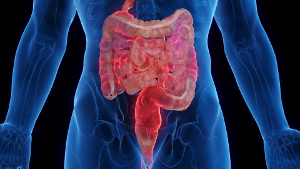 Promising results have been seen with the use of
Promising results have been seen with the use of 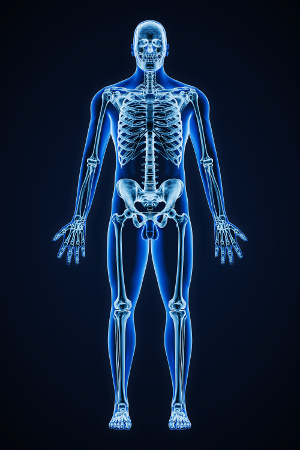

 There is a growing interest among scientists in selenium’s role in the brain and nervous system, and a placebo-controlled study published in Frontiers in Nutrition shows that
There is a growing interest among scientists in selenium’s role in the brain and nervous system, and a placebo-controlled study published in Frontiers in Nutrition shows that 
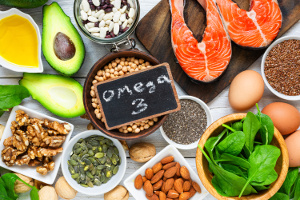 Ageing is characterized by increased physical and mental frailty that reduces one’s ability to deal with various external stress factors.
Ageing is characterized by increased physical and mental frailty that reduces one’s ability to deal with various external stress factors. 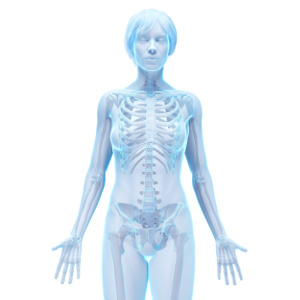
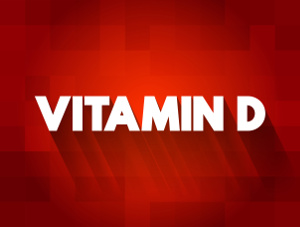
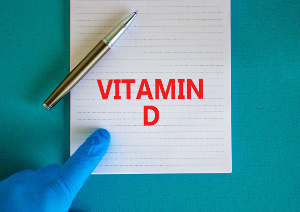
 "After about one week of taking the Q10 supplement I could feel a huge difference," says 23-year old Alan Piccini, who has been suffering from extreme fatigue and muscle aches ever since he was a child.
"After about one week of taking the Q10 supplement I could feel a huge difference," says 23-year old Alan Piccini, who has been suffering from extreme fatigue and muscle aches ever since he was a child. “Taking capsules with co-enzyme Q10 has freed me of the severe side effects of my cholesterol lowering medicine,” Mrs Franken explains.
“Taking capsules with co-enzyme Q10 has freed me of the severe side effects of my cholesterol lowering medicine,” Mrs Franken explains.